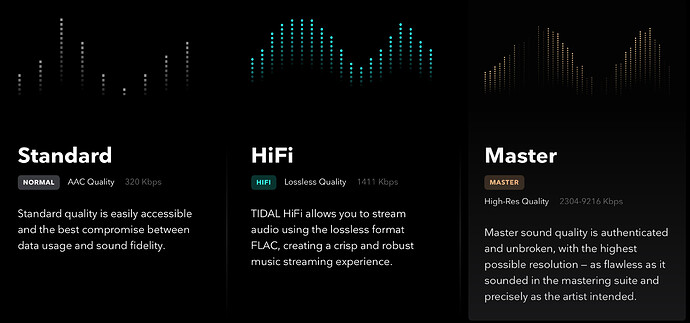Don’t worry Derek.
Jacob give the impression as champion of contestation and “smarty” sidetracking of substantive essence of discussion.
But let’s be understanding - the world has to be diverse…![]()
Maybe tomorrow I’ll get the question clear. The bitrate Derek shows has nothing to do with a download kbps. That is the bitstream value of the track. Those are two completely different things with the same unit.
The decoded and upsampled bitrate is 9216kbps. But the stream you download is around 1500Kbps. That’s the beauty of MQA. And I sincerely mean that.
I believe you that you mean it, but it’s false advertisement. If they claimed that they stream 24/192 would be one thing, but they actually advertise the bitrate. That doesn’t make sense (if this is the case).
One of the problems with MQA is that they don’t really lie anywhere, but everywhere they push the boundaries of the truth. They play with terms and units. As a result, there is no honest discussion about the content. There is a lot to do with ifs and buts.
This comes more from Tidal than MQA. The MQA promotional material is clear on this point. They mention the reduced bitrate as one of the selling points of MQA. How on earth Tidal thinks it’s ok to advertise like this is beyond me.
It’s quite contradictory. But for Tidal, a higher bitrate is a USP. So they will show a higher value. Consumers love higher numbers.
MQA’s USP is that they offer HiRes in RedBook size stream.
Both are true. The stream is roughly a RedBook format. The calculated bitstream at the DAC is 9216kbps
Well not really. The bitrate to the DAC will be at most 24/96 equivalent, that is a bit less than 5Mbps.
Can we keep it simple, Alex, I’m nagging about everything MQA.
And you say it’s OK and MQA isn’t that bad.
If you are also going to say that the Tidal/MQA facts are wrong then my world view will collapse.
There is something to be said for the fact that after unfolding the final bitstream is equal to a 24/192. If you work in a marketing department……………
Goodmorning Derek, Are we talking about the Kbps value in the screens below?
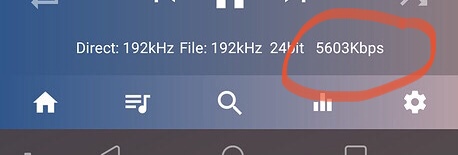
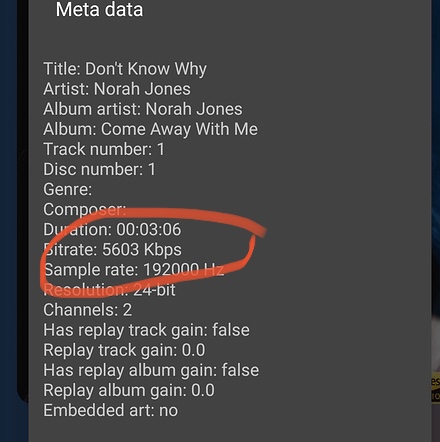
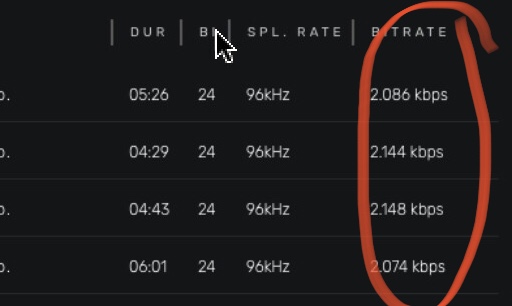
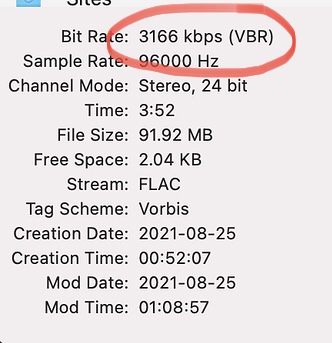
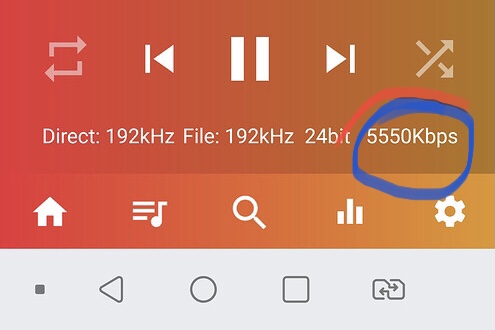
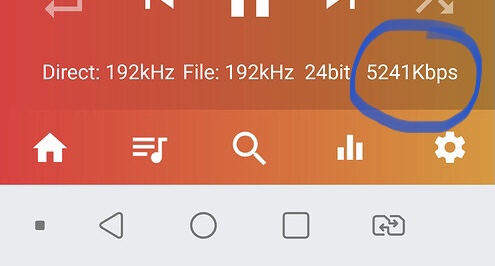
Around minute 5 he explains the bitrate.
![]() I can immagine.
I can immagine.
In the realm of MQA we can only talk about approximations. Not even MQA claims that it will be returning exactly the source file resolution. It will do its best to approximate the source file resolution, but it will not be equal. You might be able to get away with the term “equivalent”,
My Opinion:
I agree that 17/48 with some, partly lossy, encoding and good (!) upsampling is a perfect solution for good rendering. (For the commercially mastered music 16/44.1 is already overkill)
Only all the marketing claims they have come up with, batchprocesing, 1 single file system and the etc etc etc is not good.
The technique is good. Subsequently, stakeholders from marketing and record companies turned it into a Frankenstein. That’s a shame.
The most important point is the quality of the audio production of the album.
I use HQP as my main player, and it excels in upsampling.
With it, in a DSD256 upsampling, I don’t hear a great improvement between a playback of 16-44.1 tracks and Hi Res PCM tracks of the same album.
This is not the case with other players who do not upsample as well. With most of them, I get a better sound with a bit-perfect playback that is upsampled by the DAC.
As a transport file 16/44.1 is really well chosen. In theory, a little more is still beneficial. At playback you must have a very good DAC. Or resample very good.
My opinion. 
But what I said is only valid for PCM.
DSD tracks of the same album sound better. And DSD128 or DSD256 sound even better.
The version of HQPlayer that I have is a bit old, and it does not allow me to re-modulate DSD. I tried HQPlayer Pro, and it is possible with it to re-modulate on my Mac DSD64 to DSD256. The sound is improved.
You need a good DAC, that’s it. There is no amount of upsampling that can compensate for a bad DAC. Nowadays it’s less of a problem. Even cheap DACs sound reasonably well. Just look at Topping, SMSL, Schiit and iFi offerings.
I believe that he meant an high end DAC, and they are very expensive.
And even with these DACs, the sound can be further improved with upsampling.
Wealthy audiophile are using for that devices like the Chord M Sampler, which costs 5.000 euros and whose cables cost 2.000 more. The only purpose of this device is to upsample the sound that is delivered to the DAC.
Users who invest in such device do not use a cheap or a bad DAC.
There are also users who remove the M-sampler again. The endless Rabbit hole of the audiophile.
Interesting discussion, but getting very off topic.
I still don’t understand what @Derek wants to achieve with his request.
Ultimately he just wants the bitrate shown next to the sampling rate. Nothing wrong with that.
That’s what I thought at first, but then I thought he meant download speed. Or not. It must be me that I don’t get it.
If he wants to see the bitrate and this is already in the API of the streaming provider, it is a small effort
